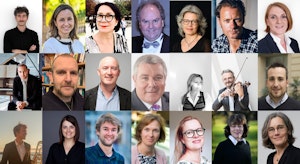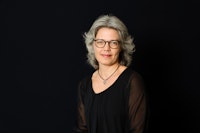The topic is not only central to music but to the whole area of the arts, according to Professor Andreas Sønning, who has a strong passion for art and music's relevance in society, as well as the connection between the arts and the market. European Creative Futures (ECF) is perhaps what we can call the apple of his eye.
Sønning points to the fact that we educate a high number of candidates within this field, but there are few fixed positions. He thinks that strong professional environments act as protectors of quality, tradition and artistic integrity and that it is vital to take this further and put it into relevant frames across sectors and target groups.
– Many performers and creating stage artists rely solely on public support in their professional life and don't think of themselves as contributors in the market.
Furthermore, he says that the EU has expressed clear expectations and demands towards all institutions providing higher education, to include innovation and entrepreneurship. Several international surveys (like PolyFonia AEC 2014) have concluded that the music field, especially, has not responded adequately to this.
– In 2023, the need to renew education and competence is even more relevant after a several-year-long digitalisation process and new conditions for the music industry.




